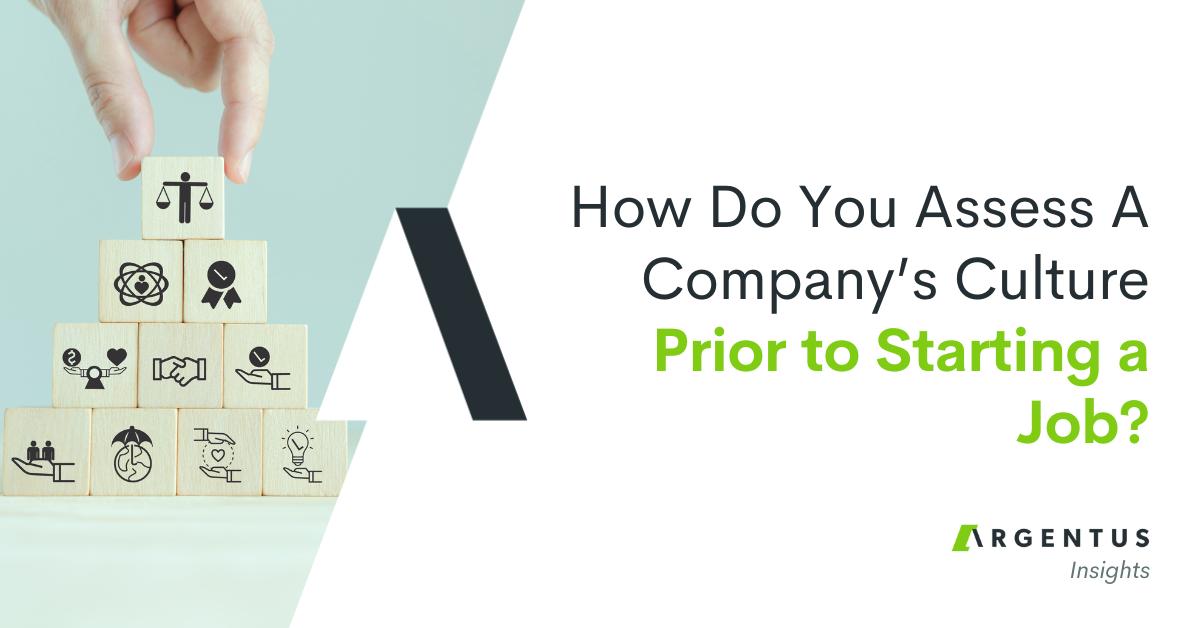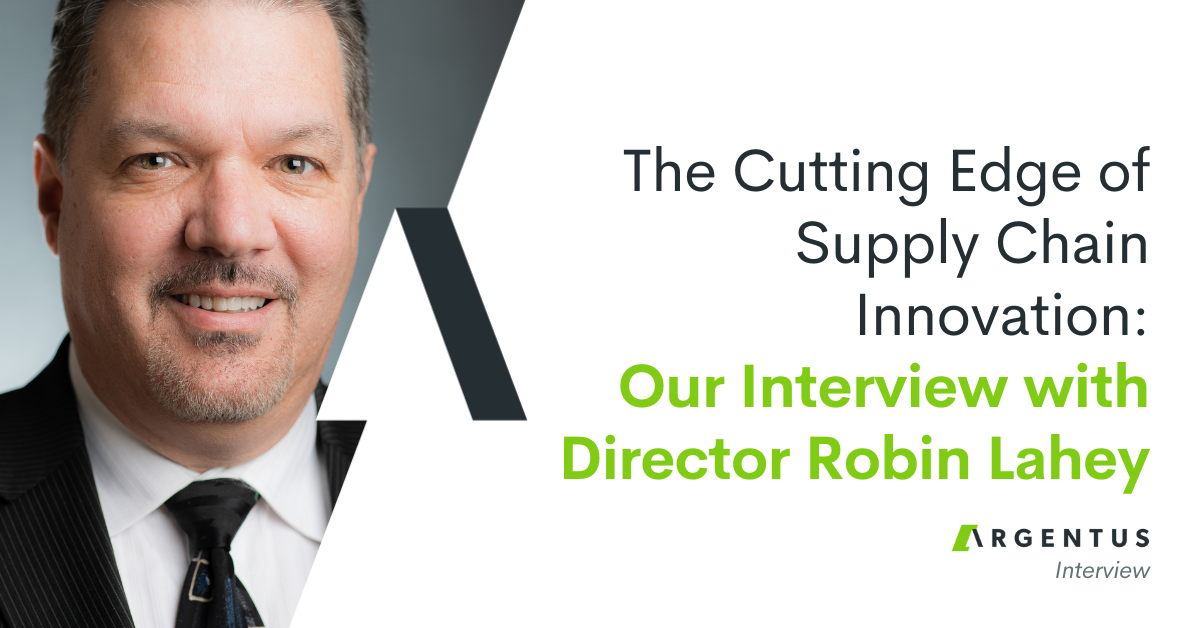“There’s no reason you can’t lead, regardless of your title.” – Taras Korec
One of the most satisfying parts of working as a specialized recruiter is the opportunity to connect with the stars in your chosen specialty. Taras Korec is one of those stars. Argentus President Bronwen Hann first connected with Taras a number of years ago, during his time as Senior VP of Supply Chain at Parmalat Canada – so in some ways, this interview has been a long time coming.
Taras is one of Supply Chain’s true heavy hitters. His career has covered almost all of Supply Chain’s disciplines, with extensive experience at the leadership level – which makes him an excellent resource for almost any Supply Chain topic under the sun. For this interview, we decided to drill down into our main concern at Argentus: talent.
We spoke about:
- The most important skills for Supply Chain professionals in 2019, at the analyst level and at the leadership level.
- The biggest hiring challenges for organizations
- The “talent deficit” in Supply Chain and how the broader field should respond,
- And more!
There’s a lot here to chew on, whether you’re a Supply Chain professional looking to boost your career, or a company looking to boost your hiring and talent development.
Let’s get started!
 Thanks for taking the time to do this interview, Taras! Could you start by giving us a brief overview of your career in Supply Chain?
Thanks for taking the time to do this interview, Taras! Could you start by giving us a brief overview of your career in Supply Chain?
Like many practitioners, I started my Supply Chain career unintentionally. I’m an Engineer by education, and I started in Engineering. When I was working at Siemens Electric in London, I was asked to be one of the founders of their strategic purchasing group. I decided to take the risk and move into a Supply Chain career path, and I really enjoyed it. From Siemens, I went to Mars where I ran their Petcare purchasing department. From there, I ran the national distribution centre in Etobicoke, and then in my final four years at Mars I worked on a global project implementing the transportation module of SAP all around the world. After running the purchasing and inbound logistics team at Christie Digital, I went to CML HealthCare to run their Supply Chain as well as maintaining all the physical facilities.
Most recently, I was at Parmalat Canada where I was Senior Vice President of Supply Chain. I was responsible for Supply and Demand Planning, Warehousing, Transportation, and the Order to Cash Process. I’m also on the board of the Supply Chain Management Association of Ontario (SCMAO), as well as Treasurer and head of the Finance and Audit committee. It’s been a rich, diverse and interesting career.
In your opinion, what are the most important Supply Chain skills in 2019 – for analysts, as well as people in leadership positions?
For analysts: Hard skills are obviously required. Negotiation with vendors, running an efficient RFP, knowing how to maximize warehouse and transportation efficiency, supply and demand planning. These hard skills are the foundation of success, and an accreditation is a great foundation for everything you do in your career. Automation is a major area for growth, so the understanding of ERP, TMS, WMS, YMS and Robotics are very useful.
Supply Chain Management covers a broad range of functional areas, so it’s important to get as much experience as you can in multiple silos. This experience is very transferable: for example, good Procurement skills can work very well when it comes time to run transportation RFP’s in Logistics. This kind of cross-functional experience is a great source of competitive advantage for analysts.
But less obvious than the hard skills are the soft skills: for frontline analysts, developing emotional intelligence is really important to your career development. Using that knowledge in negotiations and conflict resolution can really drive your impact within an organization.
Project management skills are also important. Supply Chain practitioners work on a myriad of projects – whether it’s an RFP, buying new capital equipment, or implementing software. A foundation in project management can give you an opportunity to lead and make a name for yourself.
The other major skill is leadership. I hear a lot of entry-level people say, “I’m not a manager. I’m not a leader,” and I can’t disagree more with that position. People lead all the time. There’s no reason you can’t lead, regardless of your title.
At the leadership level, I already assume that you have the hard skills. It’s more important to have emotional intelligence, leadership, and the courage to do the right things and make decisions. Right now, I do see a deficit in those soft skills across management. If you’re an analyst and you go to your boss and say, “I want some training on the hard skills,” that’s a pretty obvious sell. But how many people have the courage at the analyst level to say, “I want to take training on emotional intelligence?” A lot of leaders may not have invested in those skills themselves. They may not see the value in them, which reinforces that deficit throughout the organization.
How do you think the skills required of Supply Chain professionals have changed over the course of your career, and how do you think they’ll change going forward?
I have seen it shift significantly. Once upon a time you could have started off as an order picker or forklift driver and moved up to become a VP of Warehousing. Nowadays, that’s a much bigger challenge. The most effective leaders have holistic Supply Chain knowledge across the function: integration across silos, project management, IT, and financial acumen. We used to make operational decisions without always understanding the financial impact – that’s changed.
The last thing that’s in flux right now is AI. There are two sides to this story. One side fears that AI will take away jobs. I don’t believe that. I think AI will take on rudimentary functions and augment people, but will never replace people. There will be tons of opportunities for people who can figure out how to gain and leverage those skills.
As a Senior VP, you’ve been tasked with helping to set the strategic direction of Supply Chains, and that includes talent. What do you think are the biggest hiring challenges in Supply Chain right now?
It’s a seller’s market. It’s hard to find good people. Millennials are less likely to remain in an organization if they’re unhappy, whereas 20, 30, 40 years ago, an employee would tough it out. 85% of people in North America are currently looking for new opportunities, which is unprecedented. For employers, finding people for leadership roles is the biggest challenge. There are lots of experienced practitioners, but do they have the skills, ability and desire to lead others? Functional technical leadership is very different from people leadership.
As the retirement of baby boomers creates a leadership vacuum, finding and retaining people who have the courage, people skills, and ability to drive innovation will be key. It’s hard to find leaders who have the ability to shift their focus from strategic thinking right down to the tactical fundamentals – and back up.
Here’s my advice: you might not be able to find the “perfect candidate.” Everyone wants to hit every bullet on their job description. But if you have a person who doesn’t fit all those items, don’t be afraid to take the risk – but then have a development plan to fill in those gaps. Focus on hiring for attitude. You can train hard skills, but it’s much harder to influence attitude. I always hire based on a person’s attitude and emotional intelligence rather than just skill sets.
On the Argentus blog, we’ve been chronicling the so-called “Supply Chain talent deficit.” In short, more companies are waking up to Supply Chain’s importance, increasing demand for talent. At the same time, the baby boomer generation is beginning to retire, which is lowering supply. Do you have an opinion about this phenomenon? How severe is it, and what’s the remedy?
I do think it’s real. Once upon a time, Supply Chain used to be seen as a male-dominated, unattractive role – the truck drivers, the forklift operators, the warehouse pickers. A blue collar, uneducated part of the business. Nowadays, more people recognize that Supply Chains provide key competitive advantages to an organization. Not just on cost and service level, but also driving innovation. Disruptive forces like Amazon aren’t going away.
We need to encourage new Canadians and women to see the opportunities in the career. Supply Chain provides a very challenging career with lots of opportunities for growth – and the chance to use a vast array of skills, from hard skills to people skills. Leaders who figure this out can create organizations that provide meaningful career paths for employees and drive meaningful employee engagement.
The response to the crisis is mixed: industries that are immediately feeling competitive pressure, like the retailers responding to Amazon, have a pretty high focus on bringing in and developing talent. In the cannabis industry, I see that happening as well. Supply in that industry is a real challenge across Canada, and they’re hiring really well-trained CPG and Retail supply chain practitioners to develop effective organizations. In other industries that don’t feel as much pressure, I think there are some significant gaps that need to be closed. Hard manufacturing and pharmaceutical are a bit slower to adopt, perhaps because they aren’t feeling that same competitive pressure.
Many thanks to Taras Korec for sharing his experience and insights with Argentus! And stay tuned for more interviews with Supply Chain executives and thought leaders in the coming weeks.
Taras’s full bio: Taras Korec has over 20 years of experience in supply chain management and executive leadership. Taras was the Senior Vice-President of Supply Chain at Parmalat Canada. Prior to that, he held senior roles with CML HealthCare, Inc., Christie Digital Systems, Mars, and Siemens Electric. His specializations include global logistics, supply chain management, facilities management and contract negotiation. Taras holds a Bachelor of Science in Mechanical Engineering from the University of Toronto, an MBA from City University in Seattle, Washington and a P. Logistics designation from the Canadian Institute of Logistics Management. He is a member of the Professional Engineers of Ontario and the Canadian Professional Logistics Institute.




0 Comments